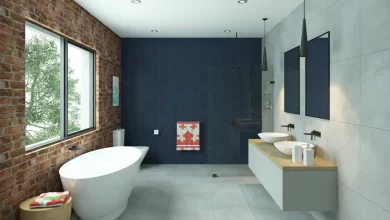Sustainable Landscaping: Eco-friendly Practices for Your Garden

In Leeds, a city that cherishes its green spaces, the Leeds Fencing Company is at the forefront of integrating sustainable landscaping into its services. Recognising the importance of environmental sustainability, this company specialises in providing eco-friendly garden fencing solutions to the community. As a leading fencing contractor in Leeds, it offers a range of services from fence repairs to the installation of new fences that align with sustainable practices.
Garden fencing is a critical aspect of sustainable landscaping, and by choosing the right fencing company in Leeds, you ensure that your outdoor space not only looks great but also supports environmental stewardship. Contemporary fencing is more than just a boundary marker; it’s part of a larger ecosystem approach that considers material sourcing, longevity, and wildlife impact.
Fence installation by a skilled fencing contractor can dramatically enhance your garden’s aesthetics and functionality. The use of fencing panels, particularly those designed for sustainability, can contribute to a garden’s eco-friendliness. These panels are constructed with consideration for their environmental impact, both in terms of materials used and the production process.
Moreover, contemporary fencing from a dedicated fencing company like the Leeds Fencing Company offers modern, stylish options that complement your desire for a chic yet responsible garden. Their commitment extends beyond installation, with fence repair services to ensure your garden’s boundary remains in top condition without the need for complete replacement.
Choosing the right fencing contractor in Leeds, who understands the nuances of garden fencing and the role it plays in sustainable landscaping, is crucial. They can provide expert advice on how to integrate eco-friendly practices into the maintenance and repair of your fencing, ensuring a reduced carbon footprint and a positive contribution to the local environment.
In essence, when considering a new fence or repairs to an existing one, opting for a service provider steeped in sustainable practices is not only beneficial for your garden’s appearance and health but also for the wider environment. The Leeds Fencing Company’s commitment to sustainable solutions represents a tangible step toward a greener, more responsible approach to our outdoor living spaces.
Benefits of Sustainable Landscaping
There are many benefits to adopting sustainable landscaping practices, including:
- Reduced water usage
- Reduced use of pesticides and fertilizers
- Less waste and pollution
- Improved soil health
- Increased biodiversity
- Improved air quality
Eco-Friendly Practices for Your Garden
If you’re interested in sustainable landscaping, here are some eco-friendly practices you can implement in your own garden:
1. Use Native Plants
Native plants are adapted to the local climate and soil conditions, so they require less water and maintenance. They also provide food and habitat for local wildlife.
2. Use Organic Fertilizers
Chemical fertilizers can be harmful to the environment and can leach into groundwater. Instead, use organic fertilizers such as compost or manure.
3. Compost Yard Waste
Composting yard waste such as leaves and grass clippings reduces the amount of waste that goes to landfills and creates a nutrient-rich soil amendment.
4. Use Drought-Tolerant Plants
Drought-tolerant plants require less water and can be a beautiful addition to your garden. Consider adding succulents or native grasses to your landscape.
5. Use Mulch
Mulch helps retain moisture in the soil, reduces weed growth, and provides nutrients as it decomposes. Use organic mulch such as wood chips or shredded leaves.
6. Use Rain Barrels
Collecting rainwater in barrels can be a great way to reduce your water usage and provide a free source of water for your garden.
By adopting sustainable landscaping practices, you can create a beautiful outdoor space that is also good for the environment. From using native plants to composting yard waste, there are many ways to make your garden more eco-friendly. Start small and gradually incorporate more sustainable practices into your landscaping routine.




